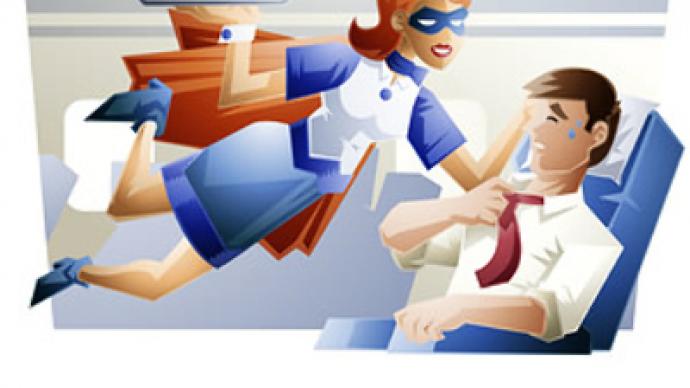Airline customer service going down the pan

Pay-toilets on airplanes may sound extreme to passengers but, considering the schemes airlines have come up with, it isn’t too surprising that profiting from toilet use is being discussed.
Michael O’Leary, chief executive of Ryanair, said, “One thing we have looked at in the past and are looking at again is the possibility of maybe putting a coin slot on the toilet door.”
O’Leary is not concerned with passengers’ ability to pay. “I don't think there is anybody in history that has got on board a Ryanair aircraft with less than a pound,” he said.
The discussion of toilets for-profit is a serious red flag. The airline industry is constantly excusing itself from customer service to pursue profits. Instead of airlines showing appreciation for customers’ patronage, airlines have customers showing appreciation for basic privileges, like water.
A year of losses
US Airways announced that this month, “Passengers will be offered free soda, juices, tea, water, and coffee in flight.”
Last year, US Airways burned the service and started charging for non-alcoholic beverages. Water was $US2.
Not to worry though, US Airways has other cash-sucking schemes.
“The company still expects to generate from $US 400 to $US 500 million in 2009 from a la carte items like checked baggage fees, choice seats, and our new blanket and pillow offering – the US Airways Power-Nap Sack ™,” their press release says.
In the past year, airlines have bullied their customers in ways that few other industries could. Restaurants probably wouldn’t survive if they had plate and fork surcharges but airlines seem fearless.
There have always been baggage restrictions. Passengers could only have a certain number of bags not exceeding a certain weight. But, American Airlines paved the way to charge passengers for checking any baggage.
It is now common in the US to pay at least $US 15 each way for the first bag and more for the second.
Ryanair is going even further by removing all check-in counters from airports, reducing staff and hopefully passengers’ belongings.
“Ultimately, we want just one in five people to check-in baggage,” O’Leary reportedly told the Daily Telegraph.
US Airways said they were anticipating revenue from seat charges. They are not the only ones. Many American airlines have implemented this revenue stream.
Some passengers prefer to sit by the windows or want aisle seats? Of course, on a full plane someone has to get these seats anyway, but passengers who ask better be prepared to pay and they should consider $US 5 a bargain.
While passengers have their wallets out, other once-complimentary services that they can expect to pay for are food, alcohol, pillow and blankets and headphones… if the airline hasn’t followed US Airways and removed their movie systems.
A Booking Buddy article carries the title, “What will airlines charge for next? Seat Cushions?”
Not yet. But Air Canada Jazz decided that if one of their planes crashes in water, your cushion is your saviour. They’ve removed life vests to save money. Passengers are now instructed to use their seat cushions as floatation devices.
Critics say that airlines are nickeling and diming their passengers. If that were true maybe the airlines’ tactics would pass unnoticed. But we are well beyond nickels and dimes.
O’Leary is considering a pound (approx. $US 1.40) to pee and airlines are charging $US 15 for buying tickets from humans.
Airlines definitely are not in business for the sheer joy of transporting people. But people don’t travel because they want to boost airline profits either.
In January, the International Air Transport Association (IATA) reported that airline passenger demand fell for the fifth consecutive month. North American carriers saw the second largest decline and European carriers claimed third place.
There is an economic crunch but there is also an industry whose service standards are pointed straight down.
Considering the outrageous possibility that people may have to stop drinking three hours before their flights so their bladders will be empty, it is little wonder that the IATA is offering a course designed to “broaden the appreciation of the passenger services activities and their impact on the revenue of your airline.”
Michelle Smith for RT












